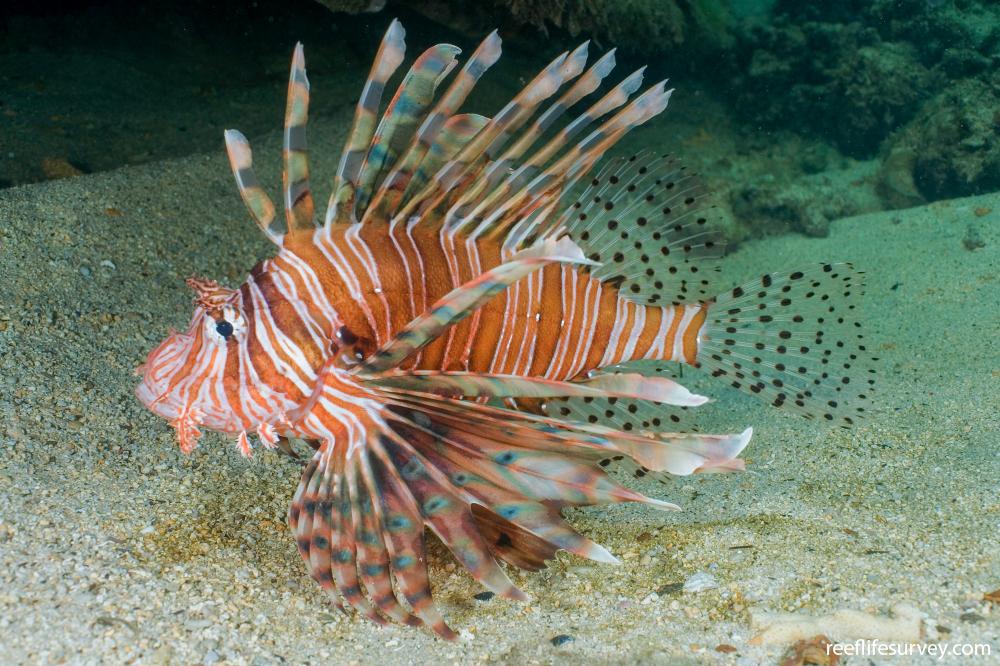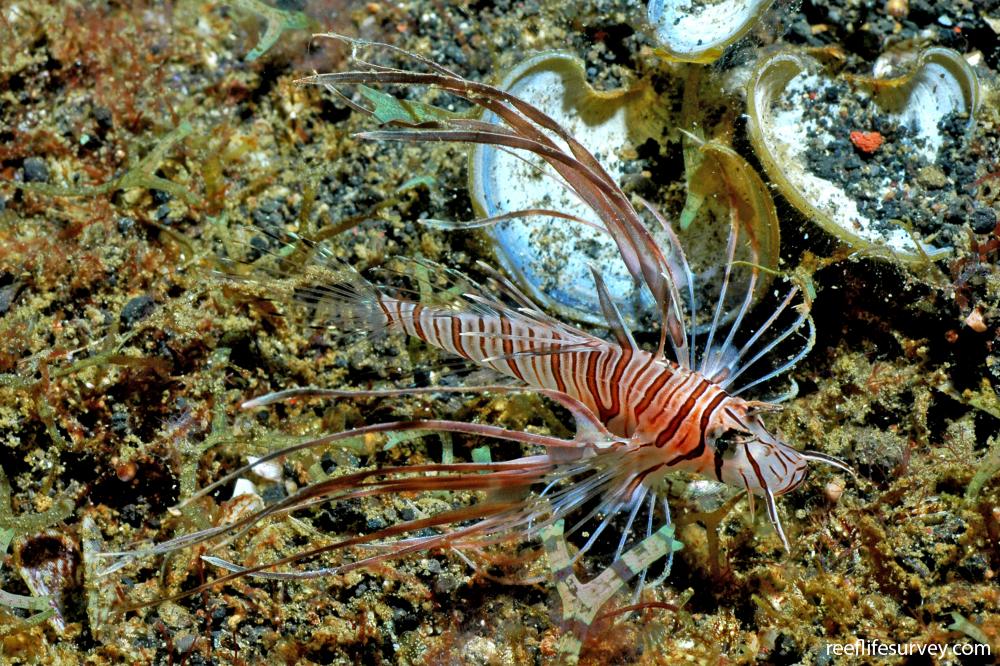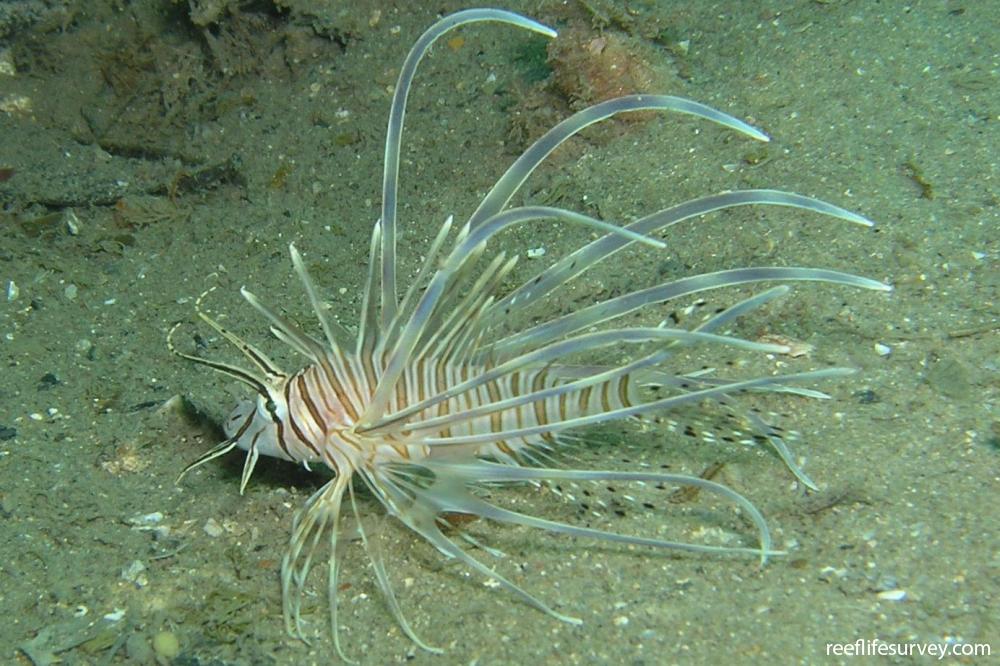Pterois volitans
Red firefish | Featherfins | Lionfish | Ornate Butterfly-cod | Peacock Lionfish | Red Lionfish | Scorpion Cod | Turkeyfish | ZebrafishSimilar Species
Same Genus
Distribution
Temperate Australasia, Tropical Atlantic/Caribbean, Tropical Indo-Pacific
Description
Dark red to almost black body bands interspaced by white bands, each bisected by a narrow dark band. More lines and markings on head than most Pteroinae (Lionfishes) species. Flag-like membranes on extended pectoral fin rays and on dorsal spines. Although it sometimes has very few spots on rear dorsal and anal fins (mostly in WA), the very similar P. russellii has no spots on these fins, and lives mostly in silty and deeper habitats. P. antennata and P. radiata have narrow white extended pectoral fin rays, lacking a flag-like membrane. Very similar P. miles (Indian Lionfish) distinguished by location, occurring in the western Indian ocean and the eastern Atlantic. Juveniles with extremely long and flexible pectoral fin rays. Inadvertent introduction into the western Atlantic has been reported to be having detrimental effects on reef fish populations in that area.
Information
Max Size: 38 cm
Sea Temperature Range: 18.4-31.3°C
Depth: 1-55m
Habitat Generalization Index: 16.16
Also referred to as the SGI (Species Generalisation Index), this describes the habitat niche breadth of the species. Species with values less than 15 are found in a relatively narrow range of reef habitat types (specialists), while those over 25 may be found on most hard substrates within their range (generalists). Learn more here.
Conservation and Rarity
IUCN Status: Not Evaluated
Occurrence: Infrequent (8.6% of sites)
Occurrence describes how often the species is found on surveys within its distribution. It is calculated as the % of reef sites surveyed by RLS divers across all the ecoregions in which the species has been observed
Abundance: Solitary (1 per transect)
Abundance is calculated as the average number of individuals recorded per RLS transect, where present.
Edit by: GJ Edgar. 2008. Australian Marine Life. New Holland, Sydney



























